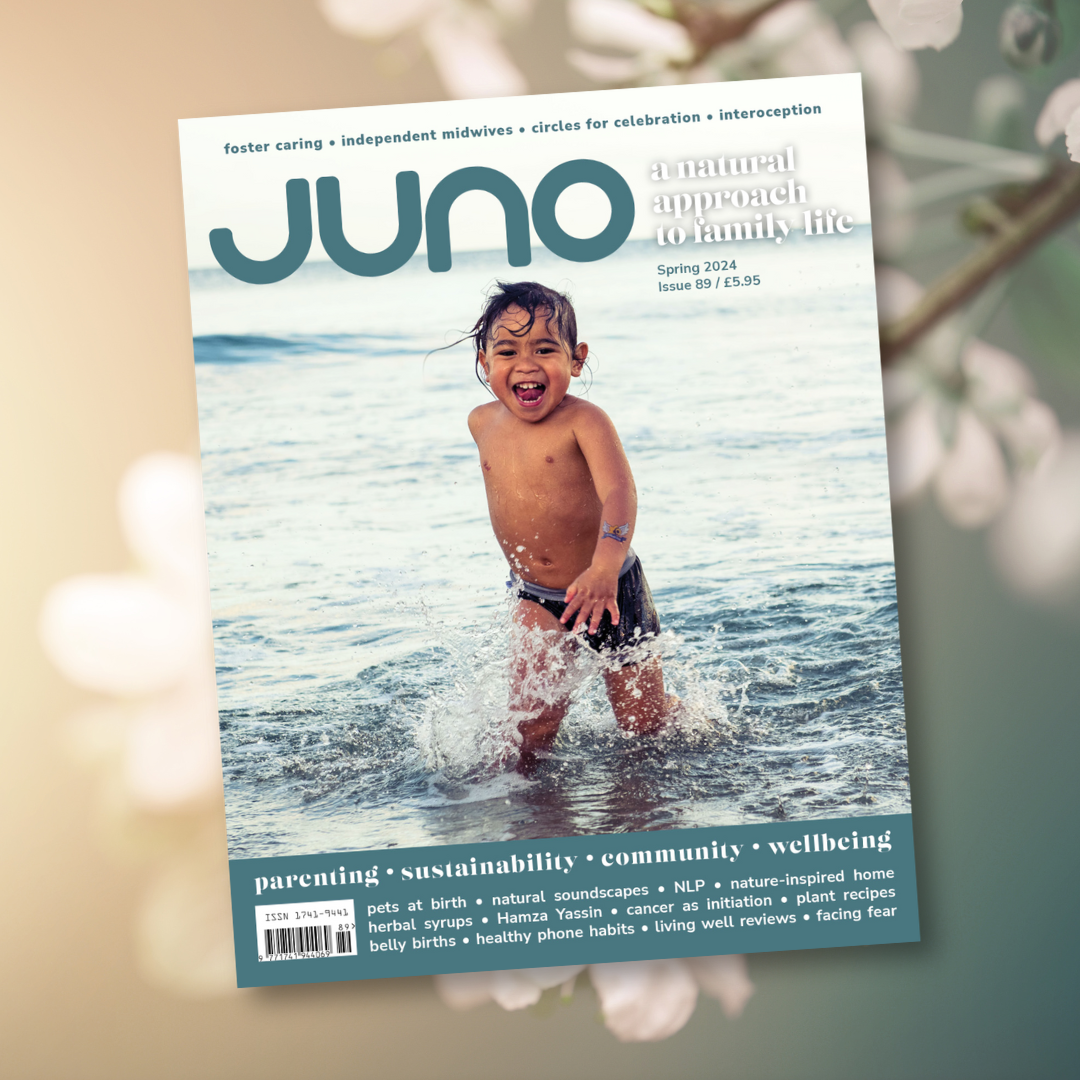If you have a teenager, you might be forgiven for believing that they don’t seem very interested in you. Their world has become all about their friends and it’s easy to feel as if you’ve become a commodity or servant; someone who just helps them get all the things they need. This pushing away is natural and important. Teenagers need to go through this process of self-identification. And the work you do – being available for what they need (often last thing at night, when you’ve just dropped – knackered and semi-asleep – into bed) – is crucial.
It can feel hard to suddenly find you’re sharing the house with a mysterious, headphoned, screen-locked goblin, rather than the sweet child you’d swear they were only last week. It’s tempting at this stage to leave our ‘big kids’ to it. (Perhaps this was the way we were parented at the same age.) But our teens still need our containment in the form of a few warm and well-placed limits. They also need us to push to be with them, regardless of how much they are pushing us away. Maybe they don’t even know they need it, but no matter how much they withdraw, they need to see and feel we are there for them. Our steady presence sends vital signals to them, which make a big difference in the long run.
It’s also easy to become harsh or over-reactive as our children get older. They seem so together in certain ways that we forget that their brains are literally restructuring themselves. The human brain is not fully developed until around 25! (And it often seems as if our brains are still wet jelly well into our 30s and 40s, no?) Forgetting this, we get enraged when they are inconsiderate, slobby or rude. Trust that the work you put in when they were younger will pay off. It’s helpful not to panic, and instead to commit to upholding your teenager’s OK-ness, even on the days when they seem like they are heading in the wrong direction. It’s important to remember that while we can set high expectations, their response (protest /sarcasm/withdrawal) is equivalent to a small child having a tantrum and needing their parent – it just looks a little different these days.
Leading with affection and playfulness is generally helpful, because it reaches through the barriers that our children need to put up. It can be necessary to create a space away from our teen where we can vent our frustrations to another adult before we are able to move in with a light touch. As teens are highly skilled at reducing us to nervous or raging wrecks, having a contained space in which to catastrophise, panic, grieve or rage about your child, away from their earshot, can be really helpful.
I don’t have to do much keeping tabs on my teenage boy as he is a Taurean homebody, but I learn so much from the way my partner parents her precocious 15-year-old son. I watch her constantly walking the line between maintaining connection and keeping him adequately contained, which she does very elegantly. Teenagers have a strong need to feel respected and trusted. They also have inhibited impulse control and an impaired ability to access risk, and therefore need us to step in. In many ways, my partner could be seen as strict compared to other parents of teens. She has satellite tracking on her son’s phone, gives him curfews, limits his screen time and prevents him from watching inappropriate media. This particular teen shows her that he needs reining in, so she responds accordingly. She is also very relaxed and permissive in other ways; she encourages him to talk freely and honestly about his use of alcohol and drugs and what he’s thinking about in terms of sexual exploration. She plays with him and fights to be close to him even though he rejects 80% of her approaches. She makes huge efforts to connect in ways that he finds interesting, such as going surfing with him or taking him to skateparks.
The combination of love being poured in, and the safety and containment of well thought-through limits, is a winner.
Troubleshooting
It’s all very well being playful but how do I get my child to do chores or homework?
It might not work instantly, especially if things have become frosty between you over time, but as you warm up the relationship using playfulness, conveying your delight and approval at every opportunity, you’ll start to notice your child becoming more cooperative. You might want to lead with playfulness and warmth, but sometimes you’ll need to put your foot down about the thing getting done.
There’s no controlling my child any more; I just have to leave them to it. My child would ignore me if I said they needed to come home.
Focus on building connection with your teen before you try setting limits. ‘Connect before you direct’ is a good maxim. Initially your limits may be ignored, but the important thing is that you are showing up with interest, in an attempt to contain your child.
My teen would get cross with me if I tried to be playful or come anywhere near them with affection.
They might, and that’s OK. Remember it’s just the build-up of emotional sludge sloughing off; you don’t need to take it personally or as a sign your affection is not welcome.
I would be livid if my child ignored my calls or swore at me. Surely they need strong discipline to make it clear that certain behaviour is not OK?
What would have happened if you’d spoken this way to your own parents? It can be helpful to work on memories of our own adolescence to free up our emotional availability for what’s happening now. You want to be able to set limits warmly, always upholding your teen’s OK-ness, otherwise you risk alienating them.
____
Roma Norriss is a mother of four. She has 15 years’ experience working internationally as a parenting instructor, speaker and consultant. Based on the groundbreaking Hand in Hand Parenting approach – which offers tangible, pragmatic strategies for generating connection – her ideas serve as a countercultural but deeply intuitive homecoming. The approach values listening, play, and warm, kind, but plentiful, boundaries. Follow Roma on Facebook for parenting guidance, @handinhandparentinguk, or find out more about her work at birthingabetterworld.co.uk.
Illustration by Veronica Petrie
studiovink.co.uk
Published in issue 82. Accurate at the time this issue went to print.



